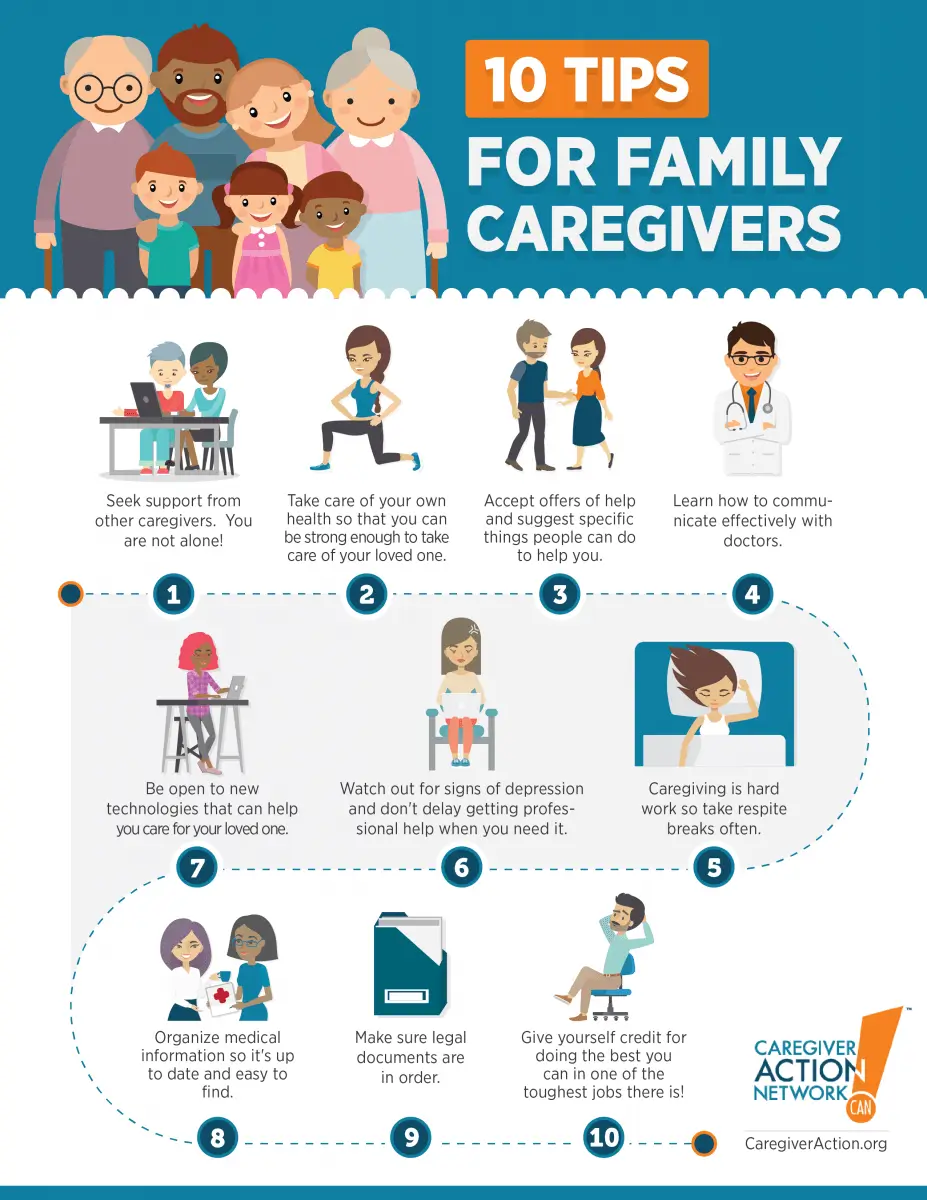10 Tips for Family Caregivers: Balancing Caregiving and Self-Care
10 Tips for Family Caregivers: Balancing Caregiving and Self-Care
As a family caregiver, your health and well-being is important. But how can you find ways to care for yourself and juggle your role as a caregiver? These tips offer you can use on daily basis to make your tasks easier and make sure you’re not neglecting your own needs.

1. Seek Support from Other Caregivers
One of the most valuable resources for family caregivers is connecting with others in similar situations. Seek support from other caregivers through online communities and support groups. Sharing experiences and advice with fellow caregivers can provide emotional relief and practical tips for managing caregiving challenges.
2. Take Care of Your Own Health
Maintaining your health is crucial for being able to care effectively for your loved one. Take care of your own health by focusing on nutrition, exercise, and sufficient rest. Regular self-care routines can help you stay strong and resilient in the face of caregiving demands.
3. Accept Offers of Help
It is essential to accept help when offered. Accept offers of help and suggest specific tasks or errands that others can assist with. Delegating responsibilities can ease your workload and reduce stress.
4. Communicate Effectively with Healthcare Professionals
Effective communication with healthcare professionals is vital for managing your loved one’s care. Learn how to communicate effectively with doctors to ensure that all medical concerns are addressed. Clear and concise communication helps in understanding treatment plans and making informed decisions.
5. Take Respite Breaks
Caregiving can be overwhelming, so taking respite breaks regularly is important. These breaks can help prevent burnout and give you time to recharge. Schedule time for yourself to engage in activities that you enjoy and that help you relax.
6. Watch Out for Signs of Depression
Be vigilant about signs of depression, which can affect caregivers. If you notice symptoms such as persistent sadness or fatigue, seek professional help promptly. Addressing depression early can prevent it from impacting your caregiving effectiveness.
7. Be Open to New Technologies
New technologies can significantly ease the caregiving process. Explore new technologies that offer practical solutions for monitoring health, managing medication, or enhancing communication with healthcare providers.
8. Organize Medical Information
Keep your loved one’s medical information well-organized and accessible. Use resources like the patient file checklist to ensure that all necessary documents are up-to-date and easy to find.
9. Ensure Legal Documents Are in Order
Make sure that all legal documents are current and correctly handled. Use a legal documents checklist to review and update important paperwork, ensuring that you are prepared for any caregiving-related legal requirements.
10. Give Yourself Credit
Caregiving is demanding, so remember to give yourself credit for doing the best you can. Recognize the hard work and dedication you put into caregiving, and appreciate your positive impact on your loved one’s life.
By following these tips and prioritizing self-care, you can better balance your caregiving responsibilities with your own well-being. The above strategies provide a solid foundation for managing stress, maintaining health, and ensuring effective caregiving. Remember, seeking support and taking time for yourself are crucial components of successful caregiving.



